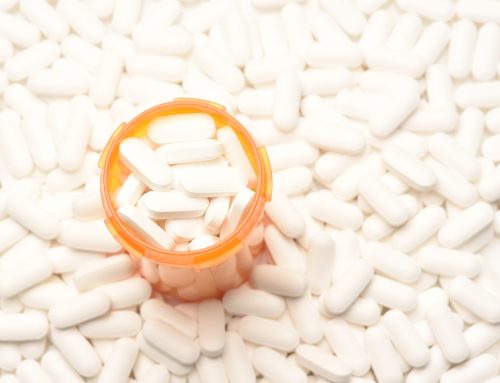
An overdose (OD) on drugs can happen to anyone who abuses substances, including those trying drugs for the first time. Whether it’s opiates, cocaine, or other prescription and illegal drugs, overdosing is a very real and dangerous possibility. Knowing drug overdose symptoms will help you avoid the greatest risk of substance abuse.
Accidental and Intentional Overdose
Someone may experience drug overdose symptoms intentionally or accidentally. The former can occur when someone is trying to harm themselves. In the majority of these situations, the person suffering from drug abuse is trying to commit suicide.
On the other hand, an accidental overdose happens if someone takes a greater amount of a substance than their body can handle. In this type of situation, the person is attempting to experience a better high rather than harming their self.
Overdoses are extremely dangerous in both situations, but it does not lead to death all the time. Thankfully, an individual can still recover from an overdose with the right drug addiction treatment.
Drug Overdose Symptoms
Those who are experiencing drug abuse may not present all the signs listed below. But if they are showing a few, those are indicators that they are probably overdosing. If you see a loved one exhibiting any of these overdose symptoms, call 911 immediately. Check their breathing and heart rate, and try to ask questions to see if they are conscious or not.
1. Abnormal breathing
The air passages become blocked when the body enters a state of emergency. A person may sometimes exhibit slow and difficult breathing or rapid breathing. This sign also covers gasping for air, as if an individual is trying to regulate their breathing which can be one of the more common drug overdose symptoms.
2. Pinpoint or dilated pupils
The pupils can vary in size or have a quivering effect depending on the type of substance abused. For example, the pupil will constrict when using substances that include:
Meanwhile, cocaine and other drugs make the pupil larger.
3. Vomiting and nausea
Two of the most common overdose symptoms are nausea and vomiting. During an overdose, the person will aspirate, and this will drive the body to push out all its content. If someone vomits while they are unconscious, they may choke.
4. Bluish skin
Many people experience a rise in their body temperature when they are overdosing. However, it is also common to see the body turn to a blue shade when the body temperature drops. When this happens, the lips, fingertips, and other extremities may have a bluish tinge. This signals that the body lacks oxygen.
5. Chest pain
Stimulants can cause the heart rate to rise, and this can result in heart pain or, worse, cardiac arrest. When the heart becomes overly stressed, the muscles can have small tears, which results in bleeding and pain. However, opioids cause the opposite effect, which involves a reduced heart rate and slower breathing.
6. Disorientation
Disorientation and confusion, coupled with anxiety, are common overdose symptoms. This includes when someone is not aware of their surroundings and cannot physically keep their balance, or if they talk nonsensically or rapidly and lash out, scream, or cry. Sometimes, someone may also exhibit aggressive behavior before they lose proper functioning.
7. Trembling or seizure
When the brain becomes disrupted, the cells can malfunction, and this can throw the body into convulsions. Trembling and shivering are the initial drug overdose symptoms and can lead to a serious case of seizure. These overdose symptoms can permanently damage brain cells, and many people do not survive these symptoms.
8. Unconsciousness and Death
The brain can suffer from pressure caused by a substance or a combination of substances. When there is a large number of toxins in the body, the brain can shut down.
Of all drug overdose symptoms, this is obviously the most dangerous. When this happens, someone’s life cannot be revived anymore.
Georgia Addiction Treatment Center Can Help
Drug overdose symptoms can occur every time someone abuses dangerous substances. The tolerance of the body fluctuates, so yesterday’s dose can mean today’s overdose. The only way to get yourself or a loved one through this is to enroll in an effective treatment program. Georgia Addiction Treatment Center can help in the recovery process. Call us now at [Direct].





